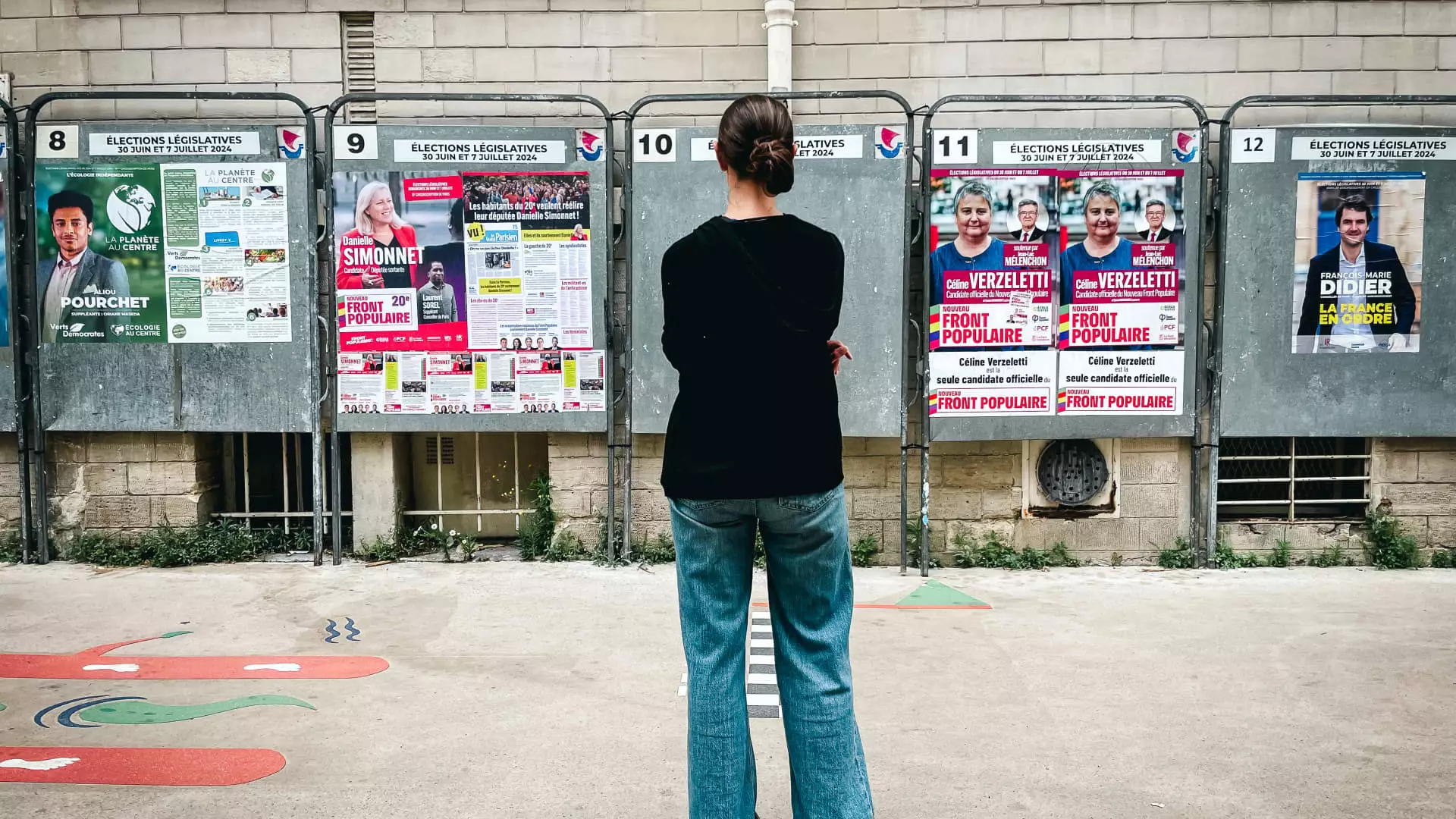In the recent ongoing parliamentary election in France, left-wing and centrist parties are facing a critical situation to block the rising popularity of the National Rally. The far-right faction saw a surge in support during the first round of voting, securing 33.1% of votes, which has left analysts and politicians concerned. With the New Popular Front (NFP) alliance winning 28% and President Emmanuel Macron’s centrist Together bloc obtaining 20%, there is a concerted effort to prevent the National Rally from gaining an absolute majority in the upcoming second round of the election on July 7.
The outcome of the election has led to intense discussions within left-wing and centrist circles on how to minimize the parliamentary seats secured by the National Rally. With French parliamentary elections typically taking place in two rounds, the need for parties to secure at least 12.5% of votes in a constituency to proceed to the decisive second-round runoff has prompted calls for tactical voting and alliances.
Political analysts have highlighted the importance of deal-making between left-wing and centrist parties to form a united front against the far-right faction. However, uncertainties loom large as the high number of three-candidate races could complicate the situation. The possibility of creating “Republican fronts” to defeat National Rally candidates who narrowly won in the first round is being explored, but challenges such as voter turnout discrepancies and unsuccessful tactical voting strategies are still cause for concern.
As the second round of voting approaches, various potential outcomes are being discussed. Pascal Lamy, Vice President for the Paris Peace Forum, has outlined three possible scenarios: a far-right majority in parliament, a hung assembly, or a coalition involving the far right. The uncertainty surrounding the election results has led to speculation about the effectiveness of the strategies being employed by left-wing and centrist parties to prevent a far-right victory.
Holger Schmieding, chief economist at Berenberg, has emphasized the likelihood of a hung parliament as the most probable outcome. In such a scenario, where neither the far-right nor the united left nor Macron’s centrists can muster a majority, the formation of a new government could face significant challenges in implementing policy decisions. The economic implications of a divided parliament could have far-reaching consequences for the country’s governance and stability.
Overall, the battle to block the far-right in the French parliamentary elections underscores the complex political landscape and the strategic maneuvering required by left-wing and centrist parties to secure a favorable outcome in the second round of voting. The outcome of the election is uncertain, and the stakes are high as parties vie for control of the National Assembly and the future direction of the country.

Leave a Reply